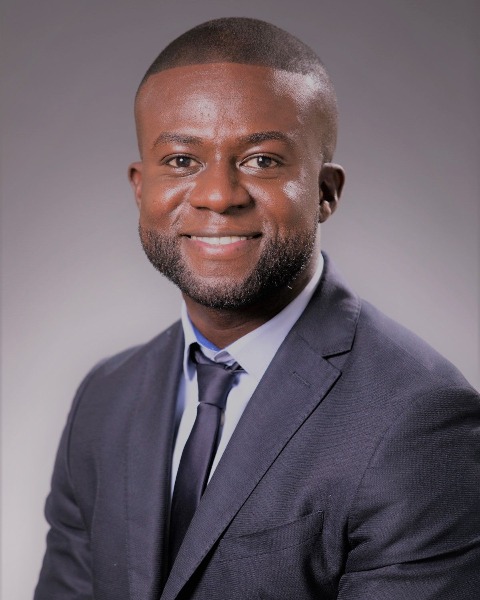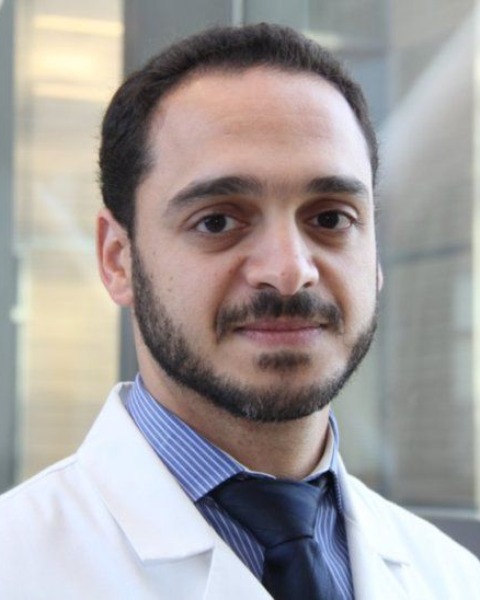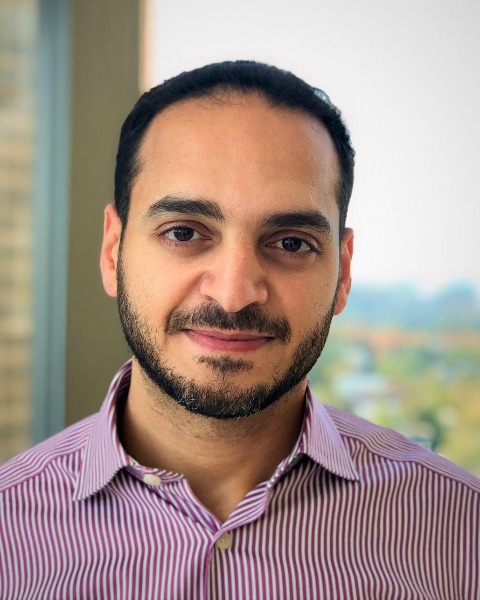Methylprednisolone Versus Usual Care for COVID-19-Associated Acute Respiratory Distress Syndrome
-

Kent Owusu, BCCCP, BCPS, PharmD
Senior Care Signature Lead; Pharmacist, Critical Care
Yale New Haven Health
Arcadia, FloridaDisclosure information not submitted.
-

Mahmoud Ammar, BCCCP, PharmD, BCPS,
Critical Care Pharmacist
Yale New Haven Hospital
New Haven, ConnecticutDisclosure information not submitted.
-

Abdalla Ammar, PharmD, BCCCP, BCPS,
Critical Care Pharmacist, Neurocritical Care
New York Presbyterian Hospital - Weill Cornell Medical College
New York, NYDisclosure information not submitted.
-
AC
Adam Chess, MPH
Data Analyst, Joint Data Analytics Team
Yale New Haven Health, Connecticut, United StatesDisclosure information not submitted.
-
JS
Jonathan Siner, MD
Associate Professor Term; Clinical Section Chief, Section of Pulmonary, Critical Care and Sleep Med
Yale-New Haven Medical Center, United StatesDisclosure information not submitted.
-
EF
Elaine Fajardo, MD
Assistant Professor of Medicine (Pulmonary); Medical Director for Respiratory Therapy, Internal Med
Yale New Haven Hospital, United StatesDisclosure information not submitted.
-
AC
Astha Chichra, MBBS
Assistant Professor, Pulmonary, Critical Care & Sleep Medicine
Yale New Haven Hospital, Yale School of Medicine, United StatesDisclosure information not submitted.
First Author(s)
Co-Author(s)
Title: Methylprednisolone Versus Usual Care for COVID-19-Associated Acute Respiratory Distress Syndrome
Introduction: Dysregulated inflammation is a hallmark of SARS-CoV-2 related acute respiratory distress syndrome (ARDS) pathogenesis. Corticosteroids (CS) have shown improved survival and ventilator-free days but the choice of corticosteroid, dose, and duration is less established. We assessed the impact of methylprednisolone (MP) vs no corticosteroid (NCS) in patients with COVID-19.
Methods: This was a single-center retrospective propensity-weighted case-control study. Adult patients admitted January–July2020 were included if they had a confirmed SARS-CoV-2 infection and excluded if they received CS other than MP. Primary endpoint was in-hospital mortality. Secondary outcomes were mechanical ventilation (MV)-free days,ICU and hospital length of stay (LOS),duration and need for invasive MV. Safety endpoints were hyperglycemia rates,positive cultures,14-day delirium-free days, and hypernatremia. Patient characteristics were compared using student’s t-test, chi-squared tests, Fisher’s exact, or Kruskal-Wallis tests as appropriate. A propensity score was developed via logistic regression. Multivariable inverse-propensity-weighted cox proportional hazards models were used for the main analysis.
Results: 1,663 patients (MP: n=358 vs.NCS: n=1305) met inclusion criteria and were included in the analysis. Median age (years) in both groups was similar; MP 66.5 vs. NCS 66.0, adj-p = 0.45.There were more males in the MP group, 60% vs. 46%, adj-p < 0.001. In-hospital mortality was not significantly different (MP 28% vs. NCS 10%) HR 1.12 (95%CI: 0.81–1.57), p = 0.55). In MV patients, in-hospital mortality was significantly lower (MP 37% vs. 43% NCS, HR 0.46 (95%CI: 0.26–0.81), p=0.01. ICU LOS and MV-free days were not significantly different. Longer hospital LOS was found for patients who received MP; 13.3 vs. 11.1, p = 0.001. No differences were noted in other safety measures except hyperglycemia, which was higher in patients who received MP (63%) vs. NCS (46%), p < 0.001. In ICU admitted patients, there were more 14-day delirium-free days in the MP cohort MP: 963/1160 days, (83%) vs. NCS (538/716 days, 75%), p < 0.001.
Conclusions: MP improved mortality in COVID-19 patients with moderate-severe ARDS requiring invasive MV. MP did not increase infection risk and was safe but did not affect outcomes in less severe COVID-19 patients.
